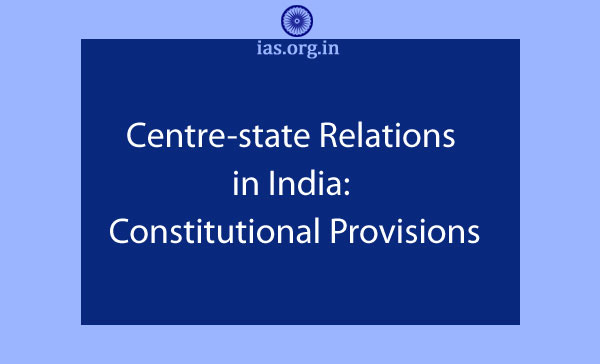While making a law, where all the centre can interfere in the state list. The interference can be of two types :-
Centre directly can legislate in the state list subjects
Directly the Parliament makes a law in the State List. Parliament is making laws in those items where the power is given to the states.
Article 249
- Rajya Sabha can initiate a bill in the State List.
- Both the Houses Should bass the bill with 2/3rd of the members present and voting supporting it. (Special Majority under Art. 249)
- Such a law can be valid for 1 year at a time. After 1 year, the parliament can again pass it any number of times but for only 1 year at a time
- In National interest
Article 250
- During National Emergency (Art. 352), Union Parliament can legislate in the state list.
- During Emergency, state list behaves like the concurrent list.
- Such a law is valid during the national emergency and another 6 months of the expiry of national emergency.
Read Also: Legislative Relation Between Centre and State in India
Article 251
- During State Emergency (Art. 356), the state legislature is suspended of dissolved. Now the union parliament can make law in the state list on behalf of the state.
Article 252
- If two or more states request the parliament, to make a common law in the state list for them only.
- But if the state wants to withdraw from common law, parliament’s permission is required.
Article 253
For implementing an international agreement or a treaty, if an amendment is required in the state list, the centre can do so.
These are the five areas where centre can legislate in state list.

States can legislate but President’s assent is required
Article 31A
- The State can enact a law for taking over private property.
- Art 300 A says States can take over private property only by passing a law.
- But it has to be asserted by President of India.
Article 31B
- Land reforms can be placed in 9th Schedule.
- 9th Schedule – there is no judicial review for any law put in this schedule.
- Land reform is a very controversial issue and to avoid unnecessary litigation it was kept in 9th Schedule.
- SC reserves the right to look into items put inside the 9th schedule – 2009.
- But such law can be put in the 9th Schedule only after the approval of the Parliament.
- Parliament will pass it with the simple majority and President of India will give his/her assent only for that state and only for that law.
Article 200
- The Governor can reserve any bill passed by the legislature of state for Presidential assent.
Must Read: Schedules in Constitution of India
Tax related
- The state legislature can impose taxes on water, electricity stored, generated or sold by an authority established by the parliament.
- But Such a bill requires the assent of the president.
- For example, NHPC/NTPC may be storing , generating, electricity in a particular state. The state can impose the tax but this bill requires President’s assent.
Inter-state trade
- The states can impose restrictions on the freedom of inter-state trade, but again, such a bill will come into force only with the assent of the President.
Assent of President means union cabinet will be deciding and finally president signs. It does not require approval of the Parliament.
Also, Read:
Governor Generals and Viceroys of India


sir i want study material.that u have.
TU KARTA VAHI H ,JO TU CHAHATA H ,HOTA VAHI H JO M CHAHATA HU
TU KAR VAHI JO M CHAHATA HU ,HOGA VAHI JO TU CHAHATA H .
Prafull,
Great notes sir, it helped me for my law studies
Nice one